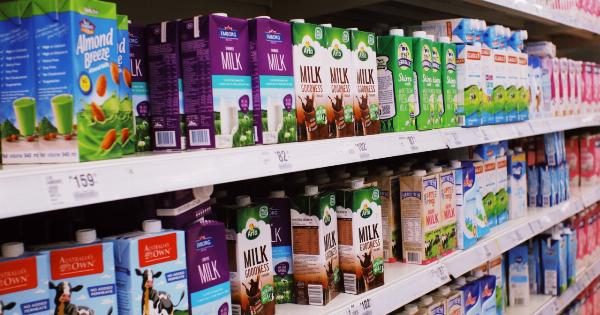Diabetes is a chronic condition that affects millions of people worldwide. The disease is characterized by high levels of blood sugar, which can damage various organ systems in the body over time.
In recent years, researchers have been exploring the role that diet may play in the development and management of diabetes. One food that has been the subject of much debate is milk. Some studies suggest that milk and other dairy products may have a protective effect against diabetes, while others suggest that they may actually increase the risk of developing the disease.
So, what is the connection between milk and diabetes? Is it protective or harmful?.
The protective effect of milk
Studies have suggested that consuming dairy products may help to reduce the risk of developing type 2 diabetes.
One study published in the journal Diabetes Care found that women who consumed at least three servings of dairy per day had a 33% lower risk of developing diabetes than those who consumed less than one serving per day. Another study found that men who consumed at least one serving of dairy per day had a 47% lower risk of developing diabetes than those who consumed less than one serving per week.
So why might milk and dairy products have a protective effect against diabetes? One possibility is that they may help to improve insulin sensitivity. Insulin is a hormone that is responsible for regulating blood sugar levels in the body.
People with type 2 diabetes either produce insufficient amounts of insulin or are unable to use it effectively, leading to high blood sugar levels. Studies have found that consuming dairy products may help to improve insulin sensitivity, which could help to lower the risk of developing diabetes.
In addition to their potential effects on insulin sensitivity, dairy products may also help to reduce inflammation in the body. Chronic inflammation is thought to play a role in the development of many chronic diseases, including diabetes.
Some studies have suggested that consuming dairy products may help to reduce markers of inflammation in the body, which could help to lower the risk of diabetes.
The harmful effect of milk
Despite these potential benefits, some studies have suggested that consuming milk and dairy products may actually increase the risk of developing diabetes.
One study published in the journal JAMA Pediatrics found that children who consumed more than one serving of milk per day had a 50% higher risk of developing type 1 diabetes compared to those who consumed less than one serving per day. Another study found that adults who consumed the most dairy products had a 13% higher risk of developing type 2 diabetes compared to those who consumed the least.
So why might milk and dairy products increase the risk of diabetes? One possibility is that they may contribute to insulin resistance, which is a key factor in the development of type 2 diabetes.
Insulin resistance occurs when the body’s cells become resistant to the effects of insulin, leading to high blood sugar levels. Some studies have suggested that consuming milk and other dairy products may contribute to insulin resistance, which could increase the risk of developing diabetes.
In addition to their potential effects on insulin resistance, milk and dairy products may also contain hormones and growth factors that could increase the risk of diabetes.
For example, milk is a natural source of insulin-like growth factor 1 (IGF-1), which has been shown to increase insulin resistance and promote the growth of cancer cells in some studies. While the amounts of IGF-1 in milk are relatively small, some researchers have suggested that long-term milk consumption could contribute to the development of insulin resistance and diabetes.
So, is milk protective or harmful?
Given the conflicting evidence on the potential effects of milk and dairy products on diabetes risk, it’s difficult to say definitively whether they are protective or harmful.
However, it’s clear that the issue is complex and that more research is needed to understand the potential mechanisms by which milk and dairy products may affect diabetes risk. In the meantime, it’s important for individuals with or at risk of diabetes to work with their healthcare provider to develop a personalized diet plan that takes into account their specific needs and preferences.
Overall, it seems that consuming dairy products in moderation as part of a balanced diet is unlikely to significantly increase the risk of developing diabetes.
However, for those who are concerned about the potential risks, there are many non-dairy alternatives available that provide similar nutrients. It’s important to focus on eating a varied and nutrient-dense diet that includes plenty of fruits, vegetables, whole grains, lean proteins, and healthy fats, regardless of whether or not dairy is included.





























